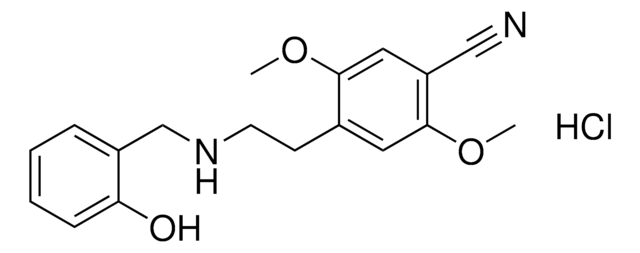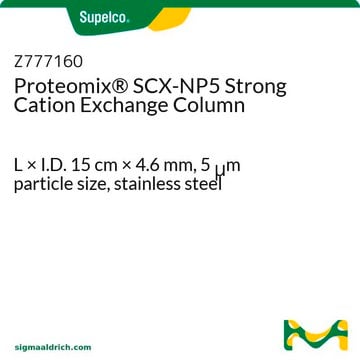SML0115
MDL 11939
≥98% (HPLC)
Synonym(s):
α-Phenyl-1-(2-phenylethyl)-4-piperidinemethanol, Glemanserin, MDL11939
About This Item
Recommended Products
Assay
≥98% (HPLC)
form
powder
color
white to tan
solubility
DMSO: ≥8 mg/mL
originator
Sanofi Aventis
storage temp.
2-8°C
SMILES string
OC(C1CCN(CCC2=CC=CC=C2)CC1)C3=CC=CC=C3
InChI
1S/C21H27NO/c23-21(19-11-5-2-6-12-19)20-13-16-22(17-14-20)15-7-10-18-8-3-1-4-9-18/h1-6,8-9,11-12,20-21,23H,7,10,13-17H2
InChI key
CTDVLAJTGZQELM-UHFFFAOYSA-N
Biochem/physiol Actions
Features and Benefits
Signal Word
Warning
Hazard Statements
Precautionary Statements
Hazard Classifications
Aquatic Acute 1
Storage Class Code
11 - Combustible Solids
WGK
WGK 3
Flash Point(F)
Not applicable
Flash Point(C)
Not applicable
Certificates of Analysis (COA)
Search for Certificates of Analysis (COA) by entering the products Lot/Batch Number. Lot and Batch Numbers can be found on a product’s label following the words ‘Lot’ or ‘Batch’.
Already Own This Product?
Find documentation for the products that you have recently purchased in the Document Library.
Our team of scientists has experience in all areas of research including Life Science, Material Science, Chemical Synthesis, Chromatography, Analytical and many others.
Contact Technical Service








